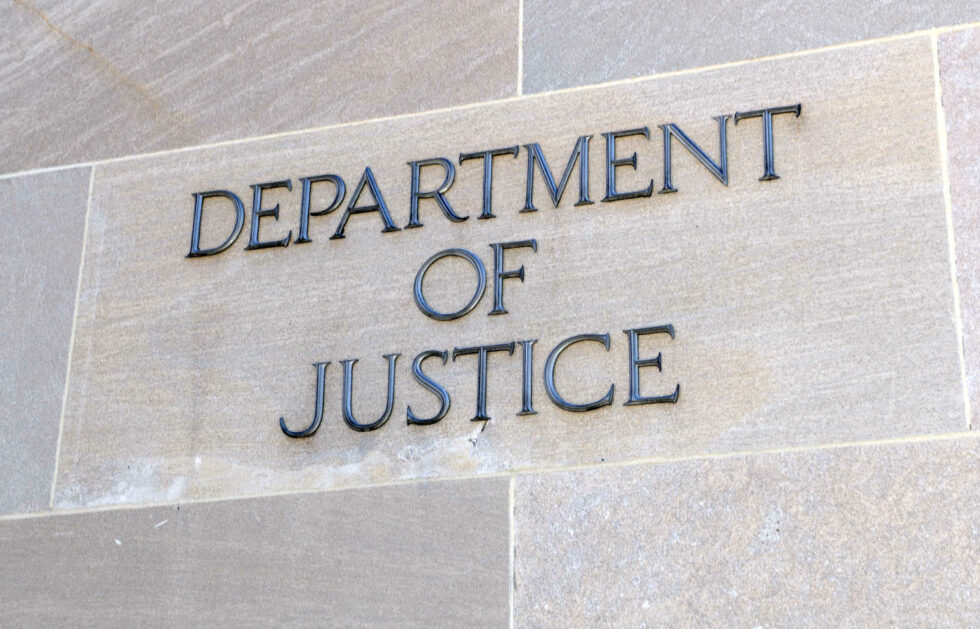
02-05-2023 | Noticias-en
Between May 16 and 18 we will present our “Comparative Anti-Corruption Guide” with a webinar.
During the three days, experts from albagli-zaliasnik (Chile), Basham, Ringe y Correa (Mexico), Beccar Varela (Argentina), BLP (Central America), Bustamante Fabara (Ecuador), CPB Abogados (Peru), Ferrere (Uruguay, Paraguay and Bolivia), Miller & Chevalier (United States) and Posse Herrera Ruiz (Colombia).
To register for each day, please enter the image.




27-04-2023 | Noticias-en
The Protection of Personal Data has become a topic of increasing concern throughout the world, and Latin America is no exception.
With the increased use of technology and the digitization of information, the privacy and security of personal data is a critical factor for businesses, governments, and citizens alike. In this context, compliance is essential to ensure compliance with applicable laws and regulations by jurisdiction and protect the informational self-determination rights of individuals.
Based on the experience provided by the specialists from the member firms of Compliance Latam, we can identify a series of key factors that are common in most countries in the region.
• Legal compliance: Compliance with personal data protection laws is mandatory for companies operating in Latin America. Each country has its own legislation on data protection. Failure to comply with these laws can result in significant penalties, including fines, and damage to the company’s reputation. Chile is close to having a data protection law in accordance with European standards. In this sense, compliance in data protection is essential to avoid possible sanctions and ensure legal compliance.
• Customer Trust: Customer trust is a valuable intangible asset for any business. Consumers are increasingly concerned about the protection of their data and expect companies to use their personal information appropriately. Failure to comply with data protection laws can have a negative impact on the perception of the company by its public and can result in a loss of trust. Instead, proper compliance with data protection regulations can strengthen the reputation of the company and improve the relationship with customers, which in turn can have a positive impact on customer retention and the generation of new ones. business.
• Market competitiveness: Data protection compliance can confer a competitive advantage to companies in Latin America. In an increasingly globalized business environment, compliance with data protection laws can be a key differentiator for companies looking to expand into international markets or establish business relationships with companies in the European Union or the United States.
• Risk mitigation: Data protection compliance also helps mitigate legal and reputational risks for companies. Failure to comply with data protection laws can have serious consequences, including lawsuits, financial penalties and damage to the company’s reputation. In addition, in Latin America, some data protection laws, such as Law No. 25,326 in Argentina, contemplate the criminal liability of companies and their managers in case of non-compliance.
• Improvement of the organizational culture: Compliance in data protection can also have a positive impact on the organizational culture of companies. The protection of information and its correct treatment not only affects clients or third parties, but also involves the workers of the entities. An appropriate compliance model in this area could even increase employee engagement.
It is important to keep in mind that the laws vary in each Latin American country, and it is essential that companies are in compliance with the specific regulations for the region where they operate. Some countries, such as Ecuador, Uruguay and Brazil, have robust data protection regulations, while others are in the process of implementing or updating their laws.
“In Chile, we are close to the promulgation of the Law on the Protection of Personal Data, a regulation that raises the standard of protection of the rights of the holders, generating new obligations for those responsible for the treatment. Additionally, it contemplates the creation of a National Data Protection Agency, an autonomous body that will have powers to investigate, supervise, regulate and sanction entities that do not comply with its application with fines of up to 20,000 UTM”, explains Constanza Pasarin, an associate of albagli -zaliasnik.
“In 2021, Ecuador issued its first personal data protection law. This Law, inspired by European standards, has meant the adoption of very high protection standards. This has spawned many opportunities and scraps. Regarding the opportunities, the protection of personal data in a country that was not used to doing so implies a significant improvement in the rights of its citizens by having a framework that regulates and protects the use of their data”, comments Daniel Castelo, Director by Bustamante Fabara. And he adds: “For Ecuadorian companies, although achieving compliance with the provisions of the Law is an important challenge, once achieved, it represents an opportunity for expansion in markets with a high level of protection such as Europe. In an increasingly digitized environment, these opportunities become more relevant. In this sense, adequate compliance with data protection regulations not only avoids large fines, but also prepares companies for their insertion in international markets.”
Compliance in the protection of personal data is of vital importance because compliance with regulations contributes to protecting the rights of individuals, strengthening customer trust, and improving competitiveness in the market by mitigating risks.
For León Weinstok, Director of BLP Costa Rica, “an inadequate handling of the personal data of clients, in addition to the possible demands and claims that it may generate, would cause a loss of consumer confidence towards the brand. In this way, the distrust generated by the inadequate treatment of the information would be transferred to the company as such, causing an affectation to the image of the brand with the consequent loss of income that this represents.
Giuseppe Manini, Partner at CPB Abogados de Perú and specialist in the matter, explains that “in the case of Peru we have a Personal Data Protection Law that dates back to 2011, however, its adaptation period was extended until the beginning of 2015, the year from which the inspections by the competent authority begin to take shape regardless of the size or category of the company and imposing fines of up to 100 UIT. These audits have been increasing over time, particularly through the review of websites or electronic platforms. In this sense and for the purpose of persuading risks of infringements,
Companies and organizations that have a culture of compliance not only avoid sanctions and reputational consequences, but can also obtain competitive advantages, which translates into better business opportunities.

26-04-2023 | Noticias-en
In the coming days, the Chamber of Deputies will analyze the reform project to the Social Security Law in which the obligation to use and implement the IMSS Mailbox is imposed on employers.
In this reform it is proposed that employers register their means of contact so that, through the IMSS Mailbox, the Mexican Institute of Social Security (IMSS) makes notifications of various documents such as: notices, administrative resolutions, settlement certificates and transmission of digital documents , among others.
Likewise, it is proposed that for those who do not update their means of contact or manifest their data in an erroneous way, the notifications that the IMSS practices will be through podiums.
Finally, for the operation of the IMSS Mailbox, the rules provided for in the Federal Fiscal Code will be applied, in addition, to notify documents or initiate procedures that are not provided for in the Social Security Law.
For more information contact:

Juan José López de Silanes | Partner Basham, Ringe and Correa | lopez_de_silanes@basham.com.mx

24-04-2023 | Noticias-en
This month, the competent authorities of the Foreign Corrupt Practices Act (FCPA) at the Department of Justice (DOJ) and the United States Securities and Exchange Commission (SEC) published a Spanish version of the “ Guide to US Foreign Corrupt Practices Act (FCPA) reference (FCPA Reference Guide). The Guide, first published in 2012, is a critical reference source for FCPA compliance and enforcement.
This novelty is yet another sign of the importance that US regulators place within the reach of the FCPA in Latin America and the Spanish-speaking world. In 2022, more than half of FCPA rulings involved questionable conduct in Latin America and about 70% of fines and penalties collected by the FCPA were attributed to settlements involving misconduct in the region. Since 2021, the Biden Administration has prioritized anti-corruption efforts in Latin America as part of its national security strategy. A Miami-based Federal Bureau of Investigation (FBI) corruption squad dedicated to investigating corruption issues in Latin America has been very active since 2019.
The publication is undoubtedly welcome news in Latin America. The Miller & Chevalier Survey on Corruption in Latin America , which has measured the views of business people and legal and compliance professionals of Latin America since 2008, has identified a growing awareness of the FCPA throughout the region in the last 15 years. Since the survey began in 2008, the percentage of respondents from local and regional companies with some familiarity with the FCPA has grown by approximately 50 percent in the region. Respondents from multinational companies in the region with familiarity have increased from three-quarters of those surveyed in 2008 to nearly nine in 10 respondents in 2020. These trends demonstrate the remarkable impact the FCPA is having on business in the region.
Perhaps more commonly used by the market, the FCPA Reference Guide provides specific guidance on what US authorities consider to be the hallmarks of a corporate anti-corruption compliance program . Of particular interest to a Spanish-speaking audience, the Guide discusses international anti-corruption legal frameworks, the jurisdictional scope of the FCPA, the elements of an FCPA violation, commonly misunderstood components such as facilitation or expediting payments, foreign government instrumentalities, and successor liability, and the particular accounting provisions of the FCPA.
For more information contact:

Jeffrey Lehtman | Partner Miller & Chevalier | jlehtman@milchev.com

21-04-2023 | Noticias-en
The Synthesis Report (SYR) of the IPCC Sixth Assessment Report (AR6) was released, summarizing the state of knowledge on climate change, its widespread impacts and risks, and climate change mitigation and adaptation. It integrates the main conclusions of the Sixth Assessment Report (AR6) based on the contributions of the three working groups and the three special reports. The Summary for Policy Makers (SPM) is structured in three parts:
A. Current situation and trends, SPM.
B. Future climate change, long-term risks and responses, and SPM.
C. Short-term responses.
The report recognizes the interdependence of climate, ecosystems and biodiversity, and human societies; the value of the various forms of knowledge; and the close links between climate change adaptation, mitigation, ecosystem health, human well-being and sustainable development, and reflects the increasing diversity of actors involved in climate action.
Based on scientific understanding, the key conclusions can be formulated as statements of fact or associated with a level of confidence assessed using the IPCC calibrated language.
IPCC Sixth Assessment Report
For more information contact:

Gustavo Papeschi | Partner of Beccar Varela | gpapeschi@beccarvarela.com











